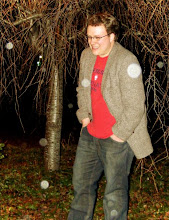The most central of villains are the type where the villain represents or completely encompasses the central theme of the film.
In the Dark Knight the Joker encompasses the films theme; chaos. He both enacts it and proclaims it, and it is his and only his character's theme. In No Country For Old Men the trick of the film is that at first it appears Chigurh (our villain) encompasses the theme of the film (death), but it's later revealed he merely enacts it.
During the course of the film he is the haunting inescapable death the looms over all the characters heads, until the very end of the film when it's revealed that he's merely our film's enactor of death. He's simply death's pawn, and we learn death looms over his head just like it looms over all others.
At the end of the film (primarily through dialogue) it's revealed that the theme isn't death... But the act of trying to escape it or even worse, retaliate against it.
From both the stories told and through the plot itself, we can see that the characters who came to the worst end were those who couldn't resign themselves to the fact that death would arrive(either immediately or in the future) and attempted to respond to it; to retaliate and interact with death.
The message of the film is that the only escape from death (for the time being) is to simply leave well enough alone: to stay out of death and its business.
Our hero is Tommy Lee Jones's sheriff. He lives because his primary concern is staying out of death's way, avoiding its path, and not interfering. He continually tries to remain as disinterested in the works of Chigurh (or death) as possible.
This is also the conflict of the film: is he correct in doing so? Isn't it his job to take interest in such matters?
The film leads us to believe the answer is yes and no. It is his job to protect the citizen as best as he can from certain forms of evil as a law man, but only so far as he is capable and has any sort of ability to control the form of evil at hand. Otherwise his duty as a human being is to leave such matters alone.
This is actually a fairly common theme and conflict in a great many stories/films. (A good film of the same theme I can think of off hand is a western starring Robert Mitchum titled The Track of The Cat.)
No Country For Old Men is a new and fresh re-envisioning of this theme primarily because it has a subtle yet direct sense of contrast.
Contrast is not only the primary way a film builds tension but also the primary tool to focus attention on the subject matter.
It is when the evil of our villain appears in the presence of something innocent and good that we feel the greatest sense of dread and tension. (In the Dark Knight the primary example is when he holds our female lead at knife-point and in No Country it is when Chigurh sits down with Lewellyn's wife.)
The contrast also highlights the theme of the film. If the Joker was not posed against other very non-chaotic characters, he would not appear so chaotic. And if Chigurh was not placed beside characters who were innocent and unconcerned with death, we wouldn't see so clearly how he has become death.
At the end of the film it is revealed Chigurh is not death itself, but rather a human. His proposed escape from death is to control it by becoming death itself, but he remains subject to the laws and forms of death like all other human beings.
Postlude: Beyond this the film is a beautifully choreographed slice of modern cinema. It's not stating anything new or unusual, it's simply stating it in a much better fashion than it has been before. Which is in reality the only value in storytelling; to re-tell.
Now if I could just stop buying so many DVDs I could make a decent go of things... I have such bad feelings about the opening of District 9... I want everyone to know I think it's going to suck...
Thursday, July 23, 2009
Subscribe to:
Post Comments (Atom)

No comments:
Post a Comment